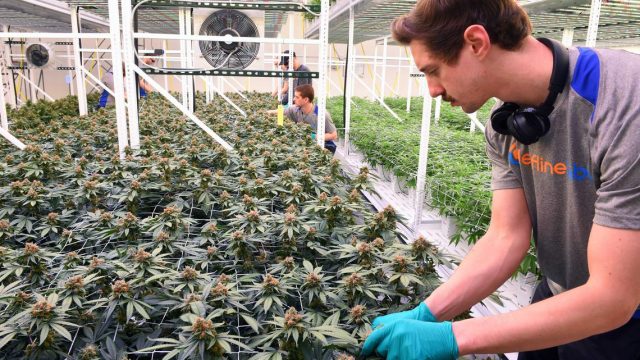New Study Suggests Legal Marijuana Doesn’t Reduce Opioid Problems

Back in 2014 a study was released suggesting a strong connection between legal marijuana and decreased overdoses from opioid abuse.
It looked at data from 1999 to 2010, and found that states that ended marijuana prohibition to one degree or another had an average of 25 percent lower rate of opioid overdoses. What’s more, that gap got wider during the timeline of the study.
Not surprisingly this data was cited widely by activists – including those working to legalize marijuana here in North Dakota – who suggested that legalizing marijuana was a good way to fight opioid addiction. People seeking pain relief could use pot, they told us, as opposed to opioids.
I’ve made this argument as well, based both on that study and logic. If someone in pain can treat it with marijuana as opposed to opioids, that sure seems like a win to me.
But a new study conducted by researchers based at Stanford, which continued with the same methodology from the previous study only using data through 2017, found that around 2012 the trend started to reverse. States with liberalized marijuana policies began to see higher rates of opioid overdoses, to the point where those states had a rate of overdoses 23 percent higher than the other states.
If pro-marijuana activists could use the earlier study as an argument for legalization, I suppose their opponents can now use this study as a rebuttal.
The researchers themselves, however, are cautioning against drawing conclusions, suggesting this is more a correlation-not-causation phenomena. “Medical cannabis users are about 2.5 percent of the population, making it unlikely that they can significantly alter” overdose rates, they write.
I’m not sure we can claim any more that marijuana will reduce opioid-related problems, but marijuana opponents can’t exactly claim it’ll make them worse either.
The study’s authors do note that, even despite this new information, marijuana can be a good for society. Just maybe not the cure for the opioid epidemic.
“Cannabinoids have demonstrated therapeutic benefits, but reducing population-level opioid overdose mortality does not appear to be among them,” they wrote.
North Dakota seems likely to have another debate about legalizing marijuana this election cycle, even despite some fracturing in the state’s pro-marijuana movement. It will be worth keeping in mind this new information as that debate goes forward.





